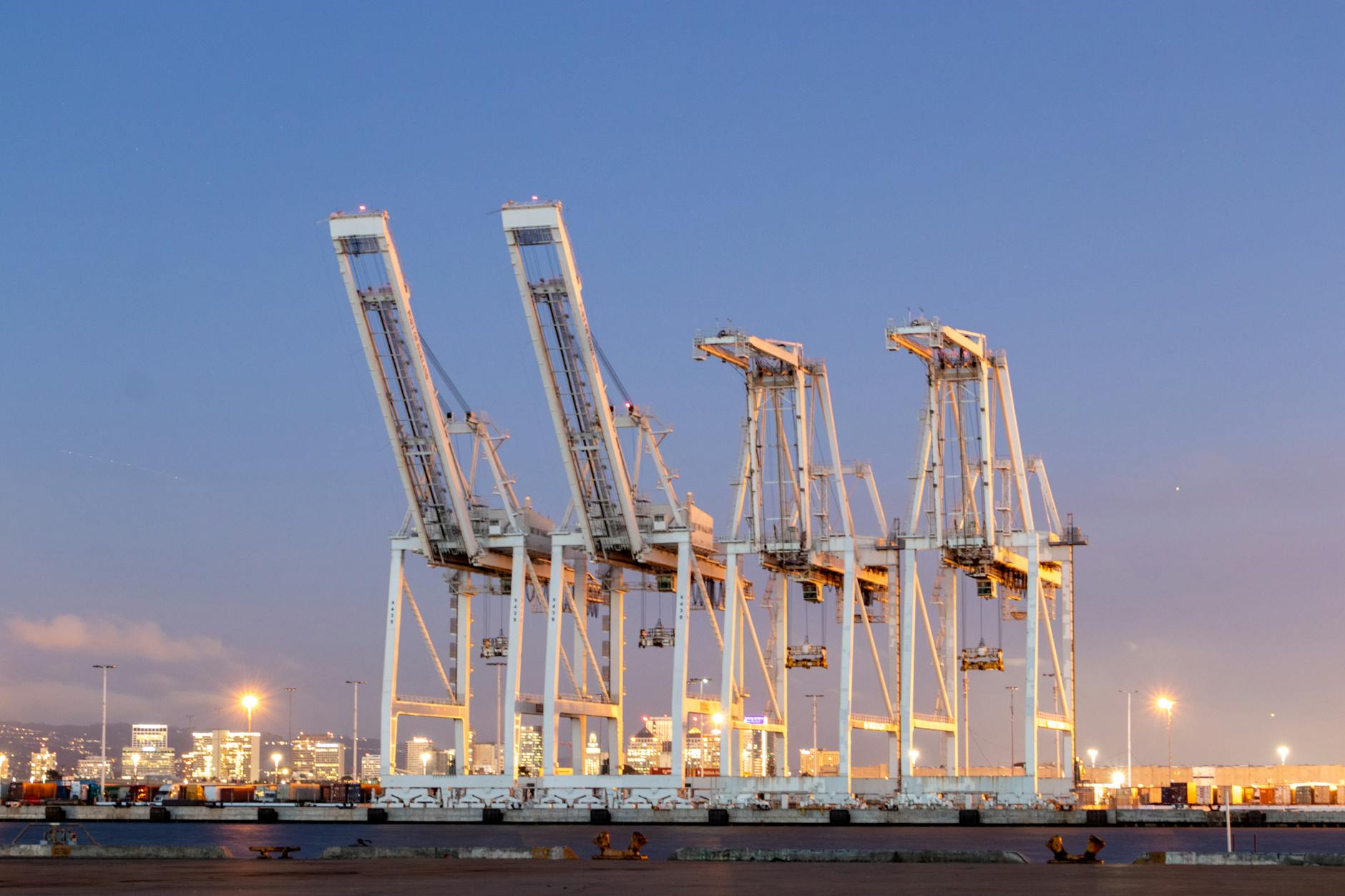How to Enhance Sustainability in Logistics Across Australia

Understanding Sustainability in Logistics
Focusing on sustainability within logistics is essential, especially when dealing with the complexities of the health and wellness e-commerce industry. One of the most effective strategies in achieving this is by leveraging 3pl logistics, which can significantly streamline operations and reduce environmental impact. The Brisbane Showgrounds often hosts industry events where experts gather to discuss innovations in sustainable practices, highlighting the importance of these conversations in our local ecosystem.
Sustainability in logistics primarily revolves around minimising resource consumption and waste while optimising effectiveness. Core principles include enhancing energy efficiency, reducing carbon footprints, and bolstering eco-conscious supply chains. These strategies not only lower environmental impact but also improve operational efficiency. They encourage businesses to adopt renewable resources, optimise delivery routes, and incorporate technology that supports eco-friendly practices.
The impact on health and wellness e-commerce is particularly significant. With consumers becoming more conscientious, there's an increasing demand for businesses that prioritise eco-friendly operations. By aligning with such values, businesses can enhance their reputation and strengthen customer loyalty. Furthermore, strategic 3pl partnerships can facilitate sustainable supply chain management by providing expertise and infrastructure essential for cutting-edge, efficient logistics solutions.
As you move toward more sustainable logistics, adopting innovations in 3PL logistics will enable you to meet both environmental goals and business objectives effectively.
Optimising Procurement for Sustainability
To optimise procurement within the health and wellness e-commerce sector, it's vital to select the appropriate third party logistics (3PL) partners. Given the ever-growing importance of sustainability, partnering with a 3PL that aligns with eco-friendly values is crucial. At the forefront of this consideration is the need to understand their sustainability practices, such as their carbon footprint and how they ensure eco-conscious operations. When attending industry events at the Brisbane Showgrounds, I always keep these factors in mind to gauge potential partners based on their sustainable logistics strategies.
A key criterion when evaluating suppliers is their commitment to sustainability and transparency. For instance, assessing their use of pick packing methods that minimise waste and optimising packaging efficiency can provide clarity and direction. Evaluating their logistics footprint can further ensure they align with a company's sustainability goals. This assessment involves considering the impact on greenhouse gas emissions, and water and energy usage, and how they integrate innovative eco-friendly strategies.
Building a strong partnership with 3PLs that have a clear vision for sustainability can significantly empower procurement efforts. Collaborating with those who focus on innovative solutions and offer transparent operations can provide the boost needed to scale health and wellness e-commerce businesses sustainably. Striking the right balance between cost and environmental responsibility is more feasible when the logistics partners share a commitment to reducing environmental impact.
Enhancing 3PL Collaborations
Building Transparent Partnerships
Creating solid partnerships with third-party logistics (3PL) providers is key to advancing sustainable logistics. When considering prospects, focus on transparency as a cornerstone of collaboration. Clear communication practices allow for sharing expectations and align with long-term sustainability goals. For instance, companies near the Eagle Street Pier for business networking events stress the importance of transparency with their logistics partners. This openness ensures that both parties are committed to eco-friendly goals and can lead to improvements in pick and pack efficiency, aligning procurement activities with broader environmental objectives.
Innovative Eco-Friendly Solutions
Innovation in logistics is crucial for sustainability. Many companies are embracing inventive solutions such as smarter inventory management systems and optimised route planning. By employing technology-driven initiatives, logistics firms can reduce carbon footprints while improving order fulfilment processes. Keeping an eye on cutting-edge technologies not only helps streamline operations but also supports the move towards greener practices. Embracing these eco-friendly solutions allows businesses to remain competitive and sustainable.
Monitoring and Reporting Impact
Regular monitoring and comprehensive reporting are imperative for assessing the sustainability impacts of logistics activities. By systematically evaluating the carbon output and resource utilisation of your logistics network, you can make data-driven decisions that refine operations and enhance sustainability efforts. This detailed oversight will empower you to iterate and improve processes, contributing to a broader transformation in the logistics sector. Achieving this level of accountability ensures sustainable logistics practices remain effective and are continually optimised for future challenges.
Implementing Sustainable Strategies
Green Packaging Initiatives
As a sustainable supply chain advocate in Brisbane, I’ve noticed how crucial it is to incorporate green packaging initiatives within our logistics processes. For those with a medium knowledge level, understanding that eco-friendly packaging doesn't just minimise environmental impact but also enhances brand reputation is essential. Consider biodegradable materials or reusable packaging solutions. These can significantly reduce waste and appeal to environmentally conscious customers, creating a win-win situation for both business and planet.
Energy-Efficient Transportation
Transitioning to energy-efficient transportation methods is another key strategy in sustainable logistics. For instance, integrating electric delivery vehicles can tremendously cut down on carbon emissions, aligning with sustainability goals. Additionally, route optimisation software can streamline delivery paths, conserving fuel and time. Such advancements in logistics not only enhance efficiency but also empower companies to become leaders in eco-conscious operations.
Waste Reduction Techniques
Incorporating effective waste reduction techniques is integral to sustainable logistics. By repurposing materials and implementing recycling programs within ecommerce logistics operations, businesses can foster a circular economy. This allows companies to minimise landfill contributions and optimise resource use, resonating with modern sustainability practices. Embracing these methods can also yield cost savings, thereby supporting both economic and environmental objectives.
Understanding logistics through a sustainability-focused lens can redefine the way professionals approach supply chains. By implementing these strategies, health and wellness e-commerce businesses can drive efficient and responsible operations, setting benchmarks for sustainability in the industry.
Avoiding Pitfalls in Sustainable Logistics
Recognise Hidden Environmental Impacts
In our pursuit of a more sustainable supply chain, it’s essential to address hidden environmental costs. All too often, businesses focus on obvious factors like carbon emissions and forget the subtle ecological effects embedded in supply chains. For instance, transportation inefficiencies at key logistics hubs, such as the Port of Brisbane, can considerably elevate a company's ecological footprint. Identifying these hidden impacts requires a thorough evaluation of every logistics component, from sourcing raw materials to last-mile delivery.
Prioritise Supplier Audits
Overlooking supplier audits can lead to unforeseen sustainability issues, undermining your efforts to implement eco-friendly practices. Conducting regular audits ensures that suppliers align with your sustainability values. For professionals in the health and wellness e-commerce sector attending networking events at Eagle Street Pier, such audits provide a platform for proactively engaging with partners to drive improvement. Set clear benchmarks for sustainability, scrutinising suppliers’ adherence to responsible sourcing and ethical production.
Realistic Approach to Implementation
Sustainability implementation should be strategically paced. Many in the e-commerce logistics domain underestimate the complexity of integrating these practices. At workshops held at the Brisbane Showgrounds, industry leaders stress the importance of preparation and resource allocation. Dividing large-scale initiatives into smaller, manageable projects can streamline the process. This approach allows for better adaptation and integration of sustainability practices across logistics networks, ultimately empowering professionals to foster meaningful environmental change.
By delving into these common pitfalls and strategically navigating them, you can nurture a robust, sustainable logistics framework that thrives within Brisbane and beyond.


